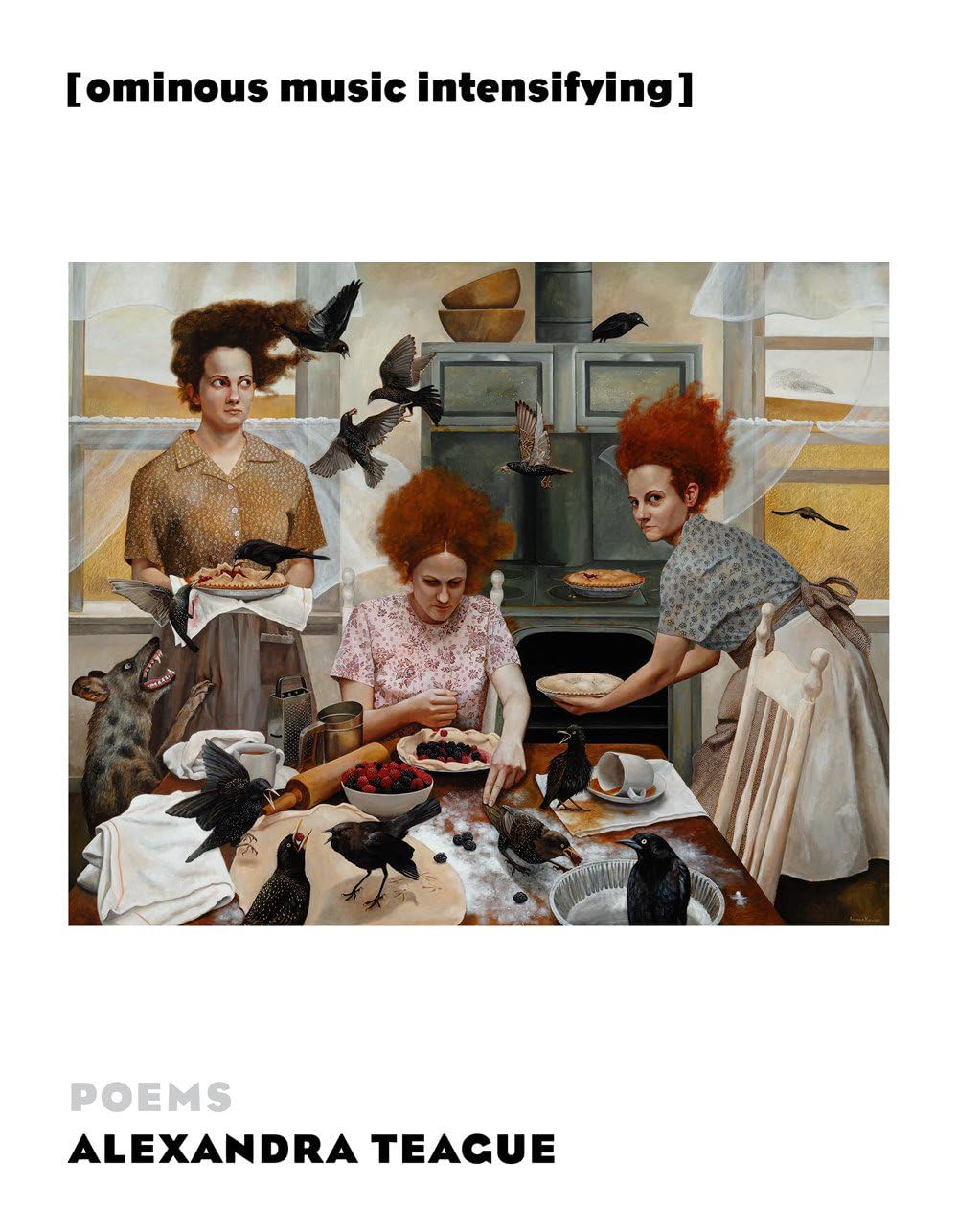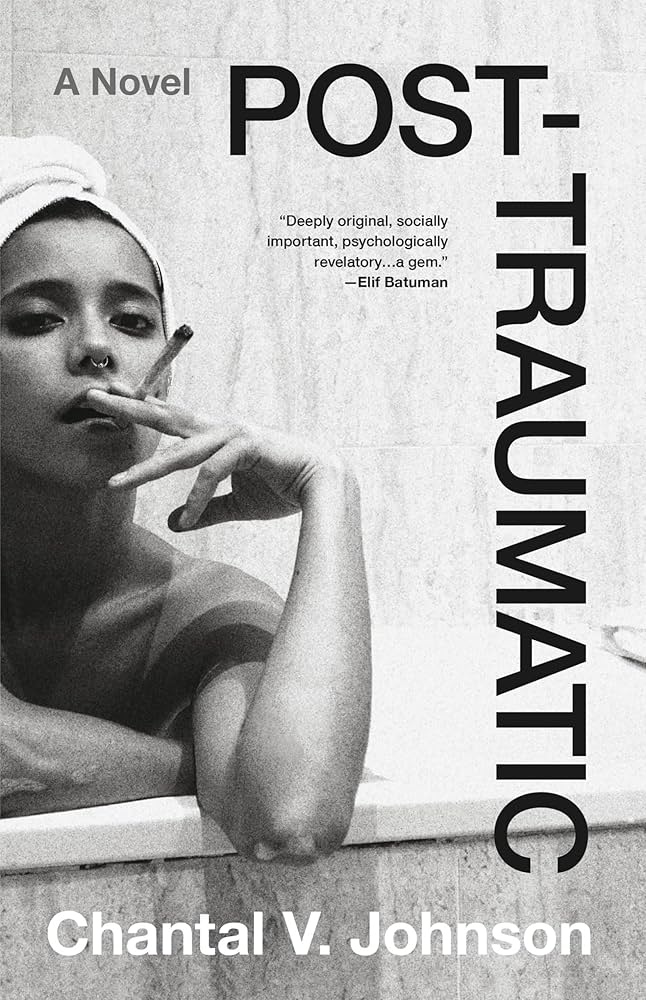Curated by SARAH WHELAN
October Friday Reads has arrived, which means Issue 16 is not far behind! This month, check out reading suggestions from a selection of contributors from this month’s upcoming issue. Then, be sure to preorder to get Issue 16 in your mailbox.
Recommendations: Shameless Woman by Magdalena Gómez, Gentrification of the Mind: Witness to a Lost Imagination by Sarah Schulman, The Emperor’s Children by Claire Messud, A Portrait of the Self as Nation: New and Selected Poems by Marilyn Chin, and This Little Art by Kate Briggs.
Shameless Woman by Magdalena Gómez, recommended by María Luisa Arroyo Cruzado
Dear Reader,
I will never let you borrow my heavily annotated copy of Magdalena Gómez’s collection of poems, Shameless Woman. It has become my Borikua history book, my call to action, my permission to laugh raucously in public spaces, and an affirmation of the power of code-switching between English and Spanish. Yes, I enjoyed listening to her two spoken word CDs: AmaXonica: Howls from the Left Side of My Body and Bemba y Chichón. However, I savor reading and re-reading Gómez’s poems in print.
In this collection, the 10 panoramic poems engage me as powerfully as Gómez’s short poems. [Panoramic poems for me are those that go beyond two pages.] A virtuoso, Gómez keenly crafts poems that read like music scores; they require re-readings to gain a fuller understanding of tone, pacing, rhythm, intonation, and the appropriate emotional investment for each persona. “A Celebration of Knowing” demands that I read it with defiant joy as Gómez subversively reclaims insults women receive. “A River of Recuerdos” confronts the uncomfortable tension between assimilated Puerto Rican women who forget their history and complex, complicated acculturated ones who embody it. “The Borikua Who Sang Broken Boleros” is a poem infused with sorrowful alliteration and imagery as “… he sang boleros/with a voice that could grate yucca.”
Gentrification of the Mind: Witness to a Lost Imagination by Sarah Schulman; Recommended by Lisa Chen
I’ve been reading about NYC’s 1980s Downtown scene for a book I’m writing in part about the performance artist Tehching Hsieh, including Alternative Histories: New York Art Spaces, 1960-2010 (Lauren Rosati and Mary Anne Staniszewski, eds), an indispensable overview of the city’s radical and mostly ephemeral art spaces outside the white cubes of commercial galleries and museums.
I read Sarah Schulman’s Gentrification of the Mind: Witness to a Lost Imagination at a furious pace. From the upheavals in her East Village neighborhood to the politics of Amazon’s bestseller rankings, Schulman shows the gentrified mindset (which she describes as “a huge, unconscious conspiracy of homogenous patterns with no awareness about its own freakishness”) hard at work, and how the happiness it promises is exacted at the cost of our collusion with injustice. Her indictment of gentrification as supremacist gamesmanship reaches its apotheosis in her reading of the AIDS crisis: “The disallowed grief of 20 years of AIDS deaths was replaced by ritualized and institutionalized mourning of the acceptable dead. In this way, 9/11 is the gentrification of AIDS. The replacement of deaths that don’t matter with deaths that do.”
I could quote endlessly from the book but a huge part of its full-throated power lies in its construction, which Schulman describes as necessarily abstract yet grounded in the “most fundamental experiences of being alive.” The style, itself an anti-gentrification process, leads each reader to have a different experience of the book and a deeply uncomfortable one. Let it all sink in and add up, she says. Know that “anything that humans construct, humans can transform.”
The Emperor’s Children by Claire Messud; Recommended by Mindy Misener
Downsizing to the smallest apartment I’ve ever lived in has meant hard decisions about which books to keep and which to let go. A paperback copy of The Emperor’s Children, for instance, got edged out by hardcovers, first editions, signed copies. But the book also received special treatment: I decided to read it again before passing it on.
Re-reading Claire Messud’s novel after ten years replaced my time-blurred impressions with a story that corresponded to memory even as it dazzled with its precision, its piles of forgotten details. The book focuses on three youngish friends in New York City, though related figures—a cousin seeking opportunity, a highly respected father—help lay the groundwork for inevitable interpersonal and ideological clashes. It’s a story about public thinkers and taste-makers, about those who have the means to give and those who must receive. Remarkably, the book’s gossipy deliciousness doesn’t flatten its characters—Messud is merciless, but not mean; her characters are foolish, but also, often, wise.
The Emperor’s Children is, in other words, an utterly enjoyable read, the sort of book I was happy to spend a weekend with and which, for the record, I still own.
A Portrait of the Self as Nation: New and Selected Poems by Marilyn Chin; Recommended by Christopher Spaide
Some poets elicit chortles, borderline-perceptible as cellphone vibrations; some are even good for the occasional caught-off-guard snort. But every so often a poet can induce heaving, hyperventilating, face-malfunctioning laughter, the kind not safe for public consumption: for me, that’s Marilyn Chin, whose career-spanning A Portrait of the Self as Nation comes out this week. The title poem, dated 1990–1991, is a riffing polyvocal routine worthy of Margaret Cho and Ali Wong: Chin’s springy, rubber-band-like speaker teasingly stretches out to fit racist, sexist models of East Asian-American womanhood—then snaps back, hits America’s gaze in the white of the eye. Other poems puncture poetic cliché, classical and contemporary—take what must be the billionth and best poem titled “Autumn Leaves”: “All that blooms must fall. I learned this not from the Dao, / but from high school biology.” (Ordered by her mother to sweep, Chin’s adolescent speaker brushes the leaves off the fire escape and right onto the patio of her downstairs neighbor, Achilles Wong.)
The new poems, formally fearless as ever, find Chin aging gracelessly, gloriously. “They say we bitch revolutionaries never go out of fashion,” opens a ninetieth-birthday poem (believe it) for the activist and author Mitsuye Yamada; it ends by musing on a poetic immortality of “You and me and Emily D. / Gnawing ganja cookies, dreaming on our backs.” The prose postscript “Brown Girl Manifesto, One of Many,” first performed at the Iowa Workshop’s 75th anniversary, bids farewell to “pallid leaseholders, cleaver-wielding grandmothers! erstwhile dreamers, readers, overlords: yeah you, you are never satisfied!” “Of course,” a smirk-sized endnote confirms, “it was totally inappropriate for the occasion.”
This Little Art by Kate Briggs; Recommended by Carina del Valle Schorske
Recently I’m wondering over how often I’ve appeared in my guise as translator in recent years, when it only represents a small part of my activity as a writer. But I think there’s a public appetite for an activity, and a figure, that’s supposed to stay behind the scenes. There’s the thrill of exposure, the exposure of a secret at the heart of all writing—that it’s not solitary work, it’s collaborative, it’s dependent, it bespeaks your position. A new book by Kate Briggs—This Little Art—takes its title from Helen Lowe-Porter, Thomas Mann’s first English translator and the object of some scholarly scorn for her amateurism. The diminutive strikes a self-deprecating note, as Lowe-Porter used it—a way to domesticate the “great determining resonance” of her work and subordinate it softly to her primary project of housewifery and mothering. A little art that in fact requires long, detailed, and expert labor, like embroidery or the cultivation of a rose garden. But I also hear the Spanish diminutive in it, which is almost an honorific in the special attention it draws to whatever it modifies. Again, the sense, in observing a translator at work, that we’re peeking through the curtain at an intimate moment, the sense that the humble privacy of this little art is—deceptively, maybe!—part of its seductive power. Like all those paintings of women reading. Guarding a silent communion inside a body generally rendered as available—to the eye, to the touch. This Little Art is a woman’s reading diary, really, a diary of her mind as it spins out while reading and translating Roland Barthes’ lectures. I didn’t care about those lectures til I read this book—a contagion of care infected me. As Kate Briggs says, “I write because I have read.” She uses italics like that, as if she is leaning towards me, confessing, insisting, involving me in an infinite reciprocal exchange I can’t escape. And don’t want to.









